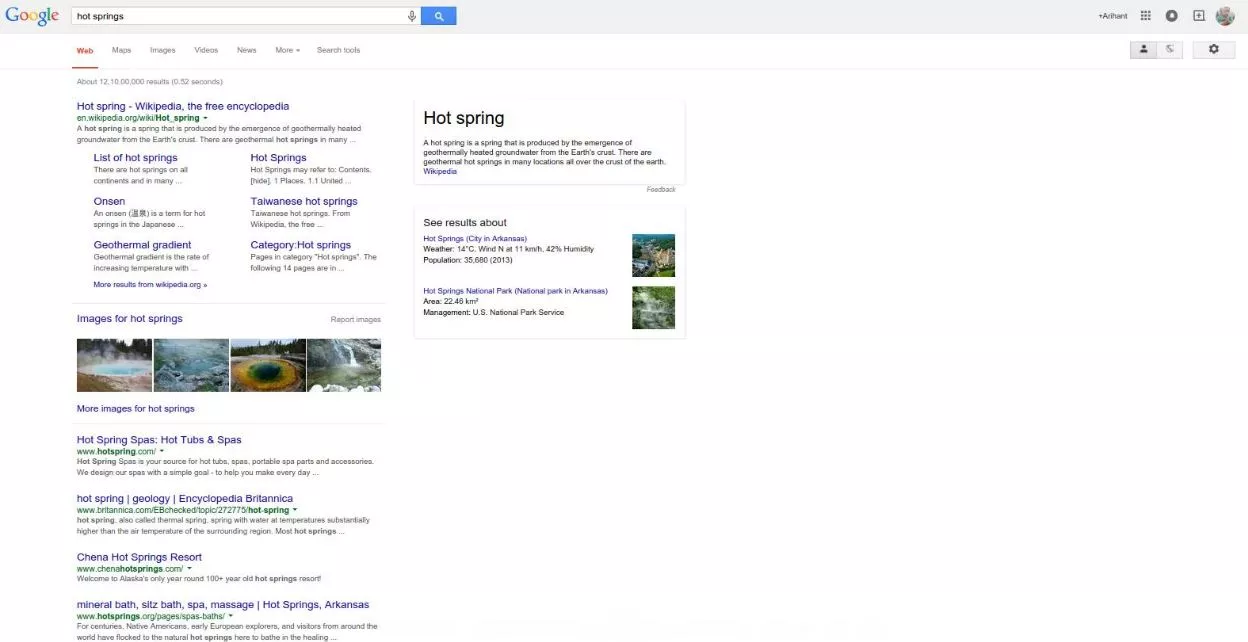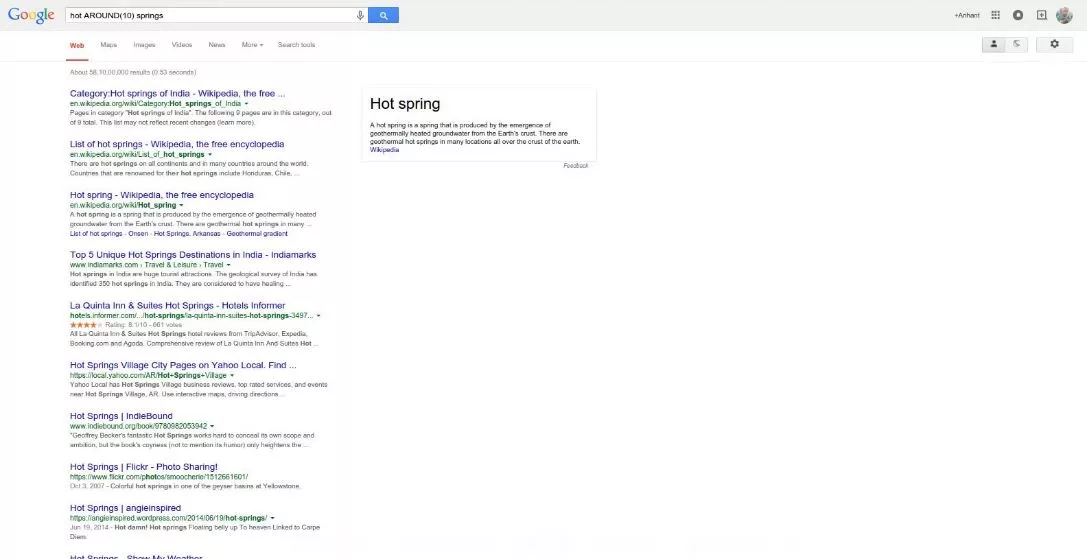 Here is this handy operator developed by Daniel Russell which
comes in as a handy trick when you are googling stuff. It’s a handy
trick, particularly when you’re looking for combination of search terms
(containing two or more search keywords) when one dominates the results,
but you’re interested in the relationship between two query terms.
Here is this handy operator developed by Daniel Russell which
comes in as a handy trick when you are googling stuff. It’s a handy
trick, particularly when you’re looking for combination of search terms
(containing two or more search keywords) when one dominates the results,
but you’re interested in the relationship between two query terms.The AROUND(n) operator (used in uppercase, as shown with n = a number) is an undocumented Google search operator that will help you find documents where the distance between two search terms is around ‘n’. The higher the number ‘n’ the less is the proximity between the search words. Here’s an example:
A research query that says “hot springs” will mostly show search results about geographical hot springs (because these two words are maximized in use together than with separation between them).

However, if we modify the query to look like “hot AROUND(5) springs,” you get results where the two terms are written on the page in close proximity.

This operator is particularly helpful in long articles or long text, for example searching Google books. It is also helpful for when searching for quotes, speeches or a song that’s stuck in your head, but you can only think of a few words from it.
Google’s wildcard search operator, represented by Asterisk (hot * springs), may achieve similar results but with AROUND, you even get to specify the distance between the two search terms.
Note: Do remember to write AROUND in all CAPS, else it won’t work.
Did you like this bonus tip about Google search? Tell us in comments!
Stay tuned for latest technology news and tips from Dailytechtricks
Stay tuned for latest technology news and tips from Dailytechtricks
Facebook friends mapper is one of the best ways to see who has hidden Facebook friends and find it out, and you can download the extension from the chrome store. this is really cool just the kind of article I like, nice to read about something that I love for once, I really love it very well thanks for sharing this wonderful info to with.
ReplyDelete